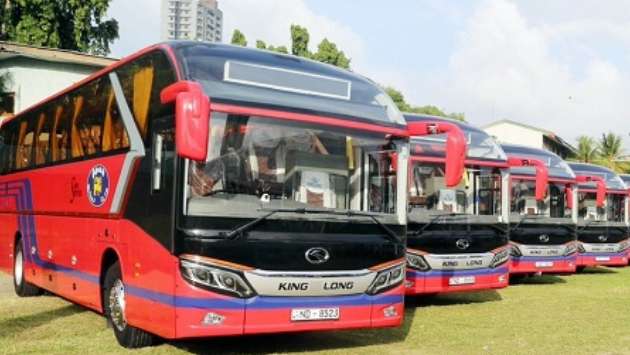By: Bandula Sirimanna
Sunday Times: A flagship government initiative to procure 100 luxury low-floor buses under the 2025 Budget has ignited a storm of controversy, as mounting allegations suggest the tender may have been structured to favour a single dominant player in Sri Lanka’s motoring industry.
Valued at over Rs. 3 billion, the project aims to establish a “Metro Bus Company” to modernise urban transport on key corridors such as Kottawa-Pettah, Kadawatha-Pettah, and Moratuwa-Pettah.
While the government hails it as a milestone in public mobility and digitalised transport, procurement analysts and civil society groups are questioning whether the tender process was manipulated to restrict fair competition.
The row deepened when the share price of a flagship listed motor company which was among the bidders jumped sharply weeks after the government announced the tender for the purchase of buses. Political commentators and market analysts pointed out that the timing of the sudden surge seemed anything but coincidental, and claims were made that inside information could have been leaked prior to the official announcement of the tender release.
According to government reports, officials who took part in the preparation of the bid documents are now facing an internal investigation.
The most contentious point is a financial eligibility clause requiring bidders to have maintained an annual turnover exceeding Rs. 6 billion (US$ 18 million) during at least three of the past five years, alongside stringent balance sheet and liquidity conditions including a positive asset-to-liability ratio below 60 per cent, and working capital exceeding Rs. 3 billion or $ 9 million for two of the last five years.
Procurement specialists argue that such criteria are excessive and inconsistent with the project’s scale.
“Turnover thresholds should ensure competence, not exclude credible competitors,” one former senior transport ministry official said. “These requirements effectively rule out most local bus importers who have reliably supplied vehicles to the government in the past.”
The technical specifications have also drawn scrutiny. The bid requires manufacturers to have produced at least 750 buses annually over three of the last five years, exported to five or more countries, and obtained multiple ISO certifications.
While such standards may seem reasonable for international procurements, critics contend that the combined requirements form a narrow filter that aligns almost perfectly with the production profile of one specific manufacturer effectively precluding competition from other qualified suppliers.
